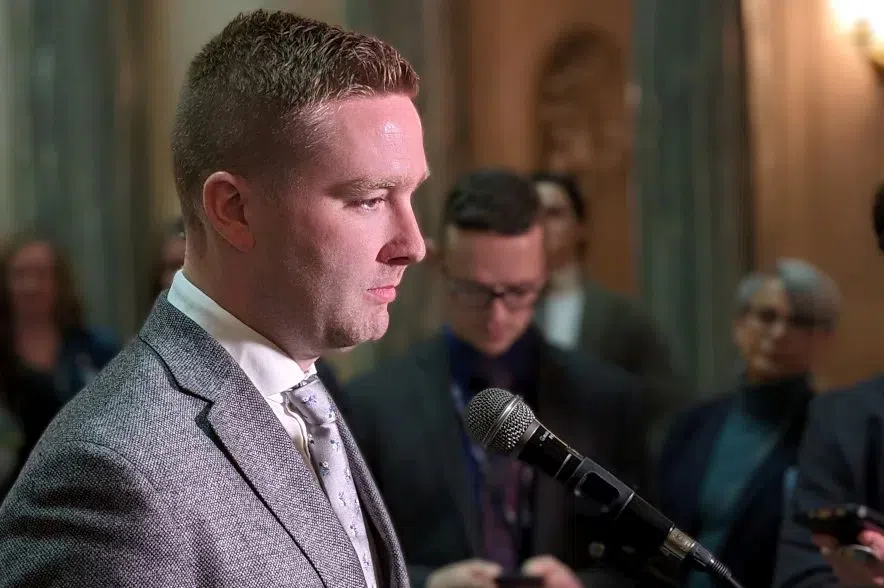World
STF declines binding arbitration, declares bargaining impasse

Education Minister Jeremy Cockrill. (Lisa Schick/980 CJME)
The Saskatchewan Teachers’ Federation rejected an offer to take contract negotiations to binding arbitration, the provincial government says.
A statement from the STF declared a bargaining impasse and that the work-to-rule sanction will begin Monday.
“We have always agreed with what Minister Cockrill has stated many times – the best deals are negotiated at the table,” said STF President Samantha Becotte in a statement. “We finally experienced real negotiations in the meetings held in May and want to build on that progress.”
Teachers and the government resumed negotiations Wednesday after teachers narrowly rejected an offer for a new three-year deal last week.
While the government’s bargaining committee arrived at the table offering to resolve the dispute through a joint offer of binding arbitration, the province said the Saskatchewan Teachers’ Federation declined.
“Government is committed to getting a deal done to provide stability and predictability for students, families and the education sector,” Education Minister Jeremy Cockrill said in a statement.
“Binding arbitration represents the best path to get that done. Our priority is to ensure that instructional time and important student activities are not affected any further.”
Last week, teachers narrowly rejected a tentative agreement which was endorsed by the federation.
The offer would have added another $18 million in annual provincial funding to address issues of classroom complexity – the number of students who need additional help beyond what teachers normally provide – which has been a sticking point throughout the lengthy contract dispute. That funding would be on top of the four-year increase the province guaranteed in an agreement with school boards.
The proposal also included raises of three per cent in the first and second years, and two per cent in the final year.
While sanctions from the union have been on hold since negotiations resumed, federation members have voted to allow the union’s executive to implement sanctions beyond the end of the current school year, until a new contract is settled.
The work-to-rule sanction starting Monday follows these parameters:
- Restricted workday.
- Arrive at their workplace 15 minutes before the start of the regularly scheduled school day and exit the workplace 15 minutes after the regularly scheduled school day ends.
- Complete withdrawal of all extracurricular services.
- Withdrawal of all voluntary services outside the restricted workday.
- This means no voluntary services before school, during the noon hour, after school and in the evening.
- Withdrawal of noon-hour supervision.
- Members must leave their place of work during the scheduled noon hour.
Previous sanctions from the federation have included strikes, work-to-rule measures, and the withdrawal of both noon-hour supervision and support for extracurricular activities.


)






